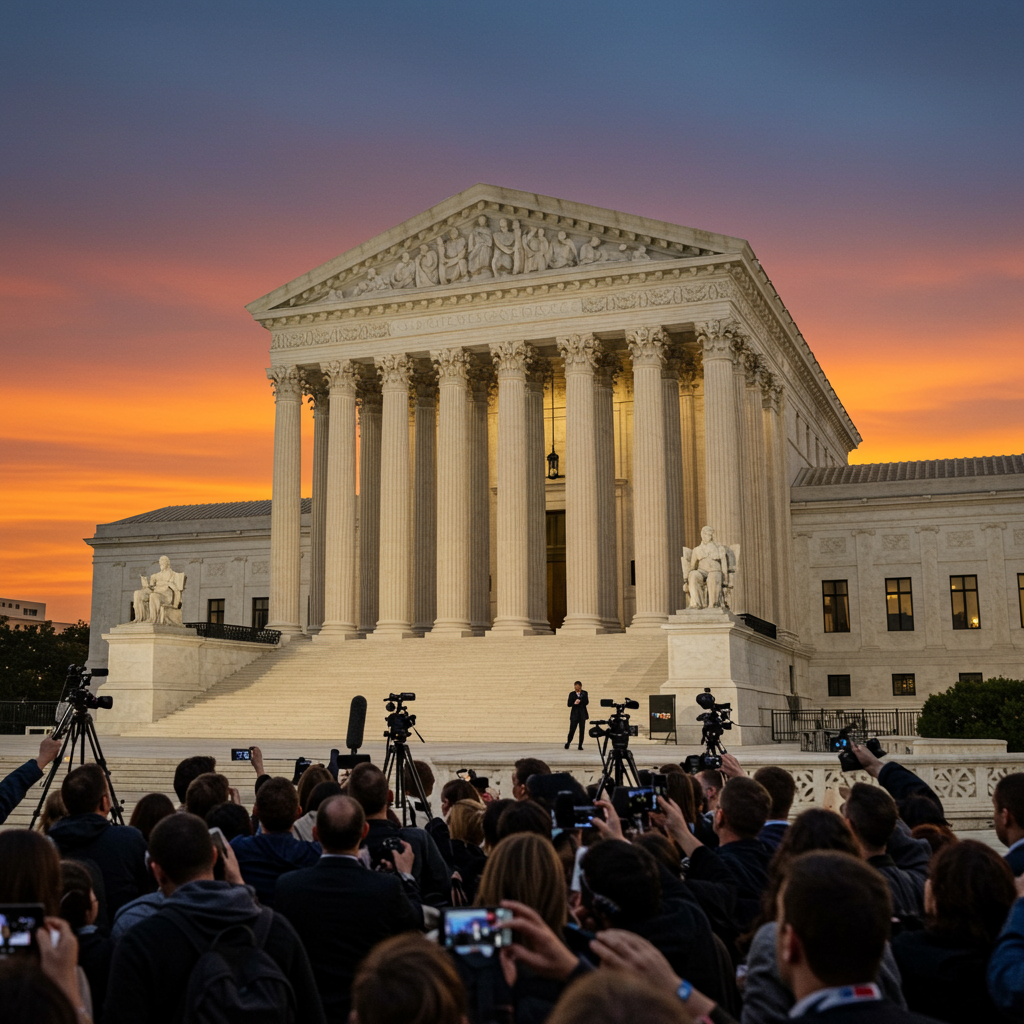Supreme Court Backs Texas Age Verification Law for Online Pornography
Washington, D.C. – June 27, 2025 – In a significant decision handed down on the final day of its term, the Supreme Court has upheld a Texas law requiring websites hosting sexually explicit material to verify users are at least 18 years old. The 6-3 ruling marks a victory for states seeking to protect minors online, while raising ongoing concerns among free speech advocates about the potential burden on adults’ access to legal content.
The decision centered on a challenge to Texas House Bill 1181, a law enacted in 2023 mandating “reasonable” age verification for sites where at least one-third of the content is deemed “harmful to children.” The adult entertainment industry, led by groups like the Free Speech Coalition, argued the requirement violated the First Amendment by placing an unconstitutional burden on adults seeking to access constitutionally protected speech and by posing significant data privacy risks. Texas countered that the law was a necessary measure to shield children from a growing “public health crisis” related to online pornography.
The Court’s Legal Standard and Majority Opinion
A key point of contention throughout the legal challenge was the appropriate level of judicial scrutiny courts should apply to such content-based regulations. Lower courts had split: a federal district court initially blocked the law using the demanding strict scrutiny standard, while the 5th U.S. Circuit Court of Appeals later upheld it under the more deferential rational basis review.
Writing for the Court’s 6-3 conservative majority, Justice Clarence Thomas rejected both standards as the sole test. Instead, the Court applied an intermediate scrutiny standard. Under this analysis, Justice Thomas found the Texas law constitutional, concluding it “advances the State’s important interest in shielding children from sexually explicit content” and is “appropriately tailored.” He noted that the law permits verification through “established methods” like government IDs or transactional data, methods already used for age-restricted services like online gambling, alcohol, and tobacco sales. Justice Thomas also remarked that the historical stigma surrounding the pornography industry did not exempt it from otherwise valid regulation.
The Dissent: Free Speech Concerns
The Court’s three liberal justices dissented. Justice Elena Kagan, writing for the dissenters, agreed on the importance of protecting children but strongly asserted that the Texas law went too far. She argued that because the First Amendment protects sexually explicit material for adults, laws impacting such content should be subject to strict scrutiny, requiring the state to demonstrate the law is the least restrictive means to achieve its goal.
Justice Kagan criticized the majority for giving “short shrift” to adult speech rights. She contended that the Texas law, by covering protected adult speech and impeding access based on content, should face the higher standard. The dissent suggested that less restrictive alternatives, such as parental content filtering technologies, could better achieve the state’s interest without broadly impacting adult access.
Broader Implications and Industry Reaction
The Supreme Court’s decision has significant implications beyond Texas, as at least 18 to 24 other states have recently passed or considered similar online age verification laws. The ruling may pave the way for these laws to be implemented or withstand legal challenges going forward.
The adult entertainment industry has voiced concerns about the practical and privacy implications of mandatory verification. Challengers argued that requiring users to upload sensitive identification or share personal data could expose them to hacking, leaks, or identity theft. While proponents suggest third-party services can ensure privacy, critics remain skeptical. The state of Texas, however, argued that parental filtering alone has proven insufficient to protect minors, a point seemingly echoed by some justices during oral arguments, including Justice Amy Coney Barrett, who commented on the difficulty of maintaining filtering across multiple devices in a household.
Following the passage of such state laws, major platforms like Pornhub have reportedly ceased operations in Texas and several other states with similar requirements, highlighting the significant impact on the industry.
Texas Attorney General Ken Paxton hailed the Supreme Court’s decision as a “major victory for children, parents, and the ability of states to protect minors.” He stated that companies “have no right to expose children to pornography” and vowed to enforce the law against non-compliant organizations.
The case, Free Speech Coalition, Inc. v. Paxton, marks a pivotal moment in the ongoing legal and societal debate over regulating online content to protect children while preserving free speech rights for adults in the digital age.


